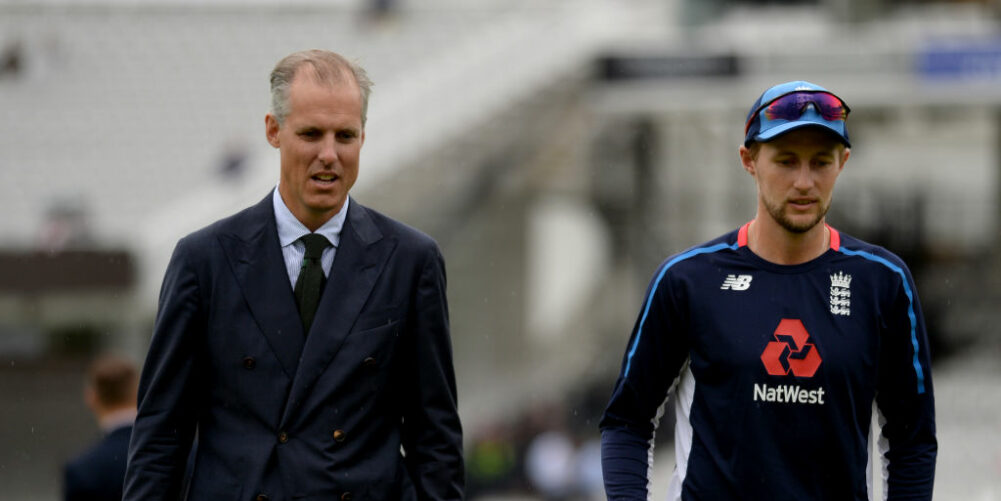By Derek Pringle
England’s Test team remained unbeaten at home over the summer, drawing the series against Pakistan in the first half and beating India 4-1 in the second. But as most teams are undefeated at home these days it is difficult to know whether to praise the selectors or not for the teams they picked.
Ed Smith took over as national selector in April this year, so has been five months in the job. With some of the old panel helping him until a second selector was appointed in July, Smith immediately made an impact by selecting Jos Buttler for the series against Pakistan, following the player’s excellent season in the IPL.
Buttler is a rare talent, at least with the bat, a clean ball-striker with a flair for shot-making and an eye for a challenge. Anyone with a jot of cricket knowledge would know that. Selecting him, therefore, in terms of ability, was an obvious move.
Yet cricket, especially in England, is often beset by prejudice and with Buttler perceived to be dipping in and out of red-ball cricket for his county, Lancashire, he was often overlooked. Smith’s resolve was to ignore the old conventions and pick the best man, which he did to handsome recompense after Buttler scored 510 runs at 46.4 over the two series.
Smith did the same thing by selecting Adil Rashid in the India series though Rashid had opted out of red-ball cricket completely for his county, Yorkshire, and was therefore a more controversial pick. There appeared to be a PR element to it, as well, after Rashid bowled Virat Kohli with a impressive leg-break during the white-ball series that preceded the Tests, to aid justification.
One part of the brief for the national selector’s role was that the incumbent should kow-tow to no-one, including the counties. Yet Rashid’s selection was a slap in the face to all the county players who continue to commit to red-ball cricket in the face of T20’s burgeoning siren call. For them, Smith seemed to be allowing Rashid his cake and then spoon-feeding it to him.
It was certainly a big gamble so early on into the job. But if Smith was hoping to test the waters with it, Rashid’s performances were barely lukewarm, with Joe Root, England’s captain, reluctant to use him, especially in the tight situations which befell most Tests in the India series.
Smith and his panel would probably say, privately at least, that there was nobody else to spin for England. Moeen Ali had returned from the winter Aussie bashed, both verbally and mentally, after a poor series, and needed to rehabilitate with Worcestershire. Dominic Bess, an optimistic punt in the series against Pakistan, was pleasingly competent with the bat, and in the field, but was found wanting with the ball.
Once selected, several newcomers were given no time to press their case, a departure from recent selection policy but very much in line with the way things were done 30 years ago.
I don’t know whether the dispensing of Bess or Ollie Pope, in the India series, was part of a horses for courses strategy or whether Smith simply lost heart. If the latter, two games seems a very brief sample from which to make such call, which in turn suggests the original judgment was based on the slightest of foundations.

The basis of selection is where the process under Smith gets interesting, especially in the more challenging Test format of the game. Based mostly on scouting reports, which are collated and processed, Smith’s final decisions would be fashioned by them as well as input from the other selectors, which, for the India series, were Trevor Bayliss and James Taylor, the recently appointed deputy selector.
Trust, especially on the judgment of others (the scouts), is at the heart of this system. Smith’s own assessments, as well as those of Taylor’s, seemed to be largely made during the Tests themselves, occasions where Bayliss was also present as England’s coach.
As several commentators pointed out, wouldn’t Smith and Taylor have been better off watching prospective England candidates rather than current team members?
You’d probably have to say yes except that by picking two 20-year-olds, Pope and Sam Curran, and a 21-year old, Bess, seeing how they might cope under Test match conditions would probably be helpful, though that does suggest they were fingers-crossed selections.
There is, though, a difference between reckless gamble and being bold, the latter something Smith and his panel erred towards, with Curran something of a triumph, at least in English conditions.
Although I think some players were dropped in haste, their disposal of others, Mark Stoneman and Dawid Malan, in particular, was timed well, which is a skill in itself. The selectors might have dropped Keaton Jennings as well, but Alastair Cook’s retirement and a series against Sri Lanka, in which Jennings’ professed prowess against spin should be handy, have presumably brought a reprieve.
Sri Lanka will also be reckoning time for Rashid, who has just signed a year’s contract with Yorkshire, a signifier that neither he, nor the county, are fully persuaded by Smith’s belief he can turn red-ball matches.

For me, selection over the summer was a mixed bag despite England remaining unbeaten. Buttler and Curran were successes, though only the latter surprised in that regard.
Bess was a curio while the jury remains out on Rashid, despite him playing all five Tests against India.
At the moment, Rashid looks like he might knock over the tail but not much else. Sri Lanka, and, providing there are no disasters there, the West Indies tour, will be a defining period in red-ball cricket for him, and those who picked him.
To show that young talent is not his and the other selectors’ default position when picking fresh faces, Smith has included Joe Denly, 32, in the Test squad for Sri Lanka. It is unusual for a player who has moved counties twice to suddenly hit their straps and become an England player, though Denly’s move back to Kent from Middlesex was driven not by form but family.
Again, much has been made of Denly’s success for T20 franchises around the world, though if England are to win in Sri Lanka, a flash 40 will not do it. I’ve not seen his leg-spin for a while but if it is more than handy he will certainly put pressure on Rashid, which may be part of his appeal.
Yet, however it is achieved, a win abroad, after a satisfactory summer, counts double and remains the acid test as to whether a team and its constituent parts are working well.















